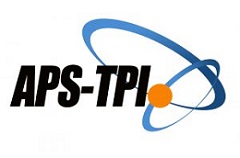Literacy Analysis of Information and Communication Technology for Vocational High School Teachers in Using Augmented Reality Media
Abstract
Keywords
Full Text:
PDFReferences
Afshari , M., Bakar, KA, Luan, WS, Samah , BA, & Fooi , FS (2009). Factors Affecting Teachers ' Use of Information and Communication Technology. Online Submission , 2 (1), 77–104.
Ahmad, M., Mansor , AZ, Badusah , J., & Abdul Karim, A. (2015). Application of the 21st Century ICT Literacy Model Among Teacher Trainers. Proceedings of the 5th Kali National Education National Seminar , (April 2016), 321–328.
Akçayir , M., Akçayir , G., Pektaş , HM, & Ocak , MA (2016). Augmented reality in science Laboratories : The effects of augmented reality on university students ' laboratory skills and attitudes toward science laboratories . Computers in Human Behavior , 57 , 334–342. https://doi.org/10.1016/j.chb.2015.12.054
Chen, YC (2019). Effect of Mobile Augmented Reality on Learning Performance, Motivation , and Math Anxiety in a Math Courses . Journal of Educational Computing Research , 57 (7), 1695–1722. https://doi.org/10.1177/0735633119854036
Educational Testing Service (ETS). (2002). Digital Transformation : A framework for ICT literacy .
Elmy, J., & Jizat , M. (2019). ICT- literacy assessment tools : Developing and validating a new assessment instrument for trainee teachers in Malaysia. Journal for Research in Mathematics Education , 3 (August), 325–336.
Ghavifekr , S., & Rosdy , WAW (2015). Teaching and learning with technology : Effectiveness of ICT integration in schools . International Journal of Research in Education and Science , 1 (2), 175–191. https://doi.org/10.21890/ijres.23596
Helaludin . (2019). Improving Technological Literacy Capability in Efforts to Develop Educational Innovation in Higher Education. Pendais , I (score 403), 44–55.
Jackson, M. (2017). Integration of ICT in the Mathematics Classroom . Journal of Initial Teacher Inquiry , 3 , 90.
Jimoyiannis , A., & Komis, V. (2007). Examining teachers ' beliefs about ICT in education : Implications of a teacher preparation programs . Teacher Development , 11 (2), 149–173. https://doi.org/10.1080/13664530701414779
Jo Shan Fu , ., & Fu , JS (2013). ICT in Education : A Critical Literature Review and Its Implications . International Journal of Education and Development Using Information and Communication Technology , 9 (1), 112–125.
Junindra , A. (2021). Designing Social Studies and Civics Learning Based on ICT Literacy ( Information and Communication Technology) at the Elementary School Level. Journal of Basicedu , 5 (3), 1683–1688.
Kanyılmaz , T., Topuz , O., Ard , FN, Alkan , H., ztekin , SNS, Topuz , B., & Ardıç , F. (2021). Effectiveness of conventional versus virtual reality-based vestibular rehabilitation exercises in elderly patients with dizziness : a randomized controlled study with 6-month follow-up . Brazilian Journal of Otorhinolaryngology , (xx). https://doi.org/10.1016/j.bjorl.2021.08.010
Khan, T., Johnston , K., & Ophoff , J. (2019). The Impact of an Augmented Reality Application on Learning Motivation of Students _ Advances in Human- Computer Interactions , 2019 . https://doi.org/10.1155/2019/7208494
Kohli , V., Tripathi , U., Chamola , V., Rout , BK, & Kanhere , SS (2021). A review on Virtual Reality and Augmented Reality use-cases of Brain Computer Interface based applications for smart cities . Microprocessors and Microsystems , 104392. https://doi.org/10.1016/j.micpro.2021.104392
Nugroho Yanuarto , W., Mistima Maat , S., & Husnin , H. (2021a). ICT literacy level of Indonesian senior high school mathematics teachers . Journal of Physics : Conference Series , 1778 (1). https://doi.org/10.1088/1742-6596/1778/1/012019
Nugroho Yanuarto , W., Mistima Maat , S., & Husnin , H. (2021b). Teacher's belief and mathematics knowledge contributing ICT literacy in an Indonesian context . Journal of Physics : Conference Series , 1778 (1). https://doi.org/10.1088/1742-6596/1778/1/012037
Rahmatina, N., Dharmono , & Kaspul. (2017). Information and Communication Technology Literacy Biology Teachers in Teaching and Learning Activities at Madrasah Aliyah Level Banjarmasin City . 52–60.
Sang, G., Valcke , M., Braak , J. van , & Tondelur , J. (2010). Student teachers ' thinking processes and ICT integration : Predictors of prospective teaching behaviors with educational technology . Computers and Education , 54 (1), 103–112. https://doi.org/10.1016/j.compedu.2009.07.010
Vaičiũniene , V., & Gedviliene , G. (2008). students learning experience in the integrated information literacy course constructed in virtual learning environment . Informatics in Education , 7 (1), 127–142. https://doi.org/10.15388/infedu.2008.08Refbacks
- There are currently no refbacks.





.png)













